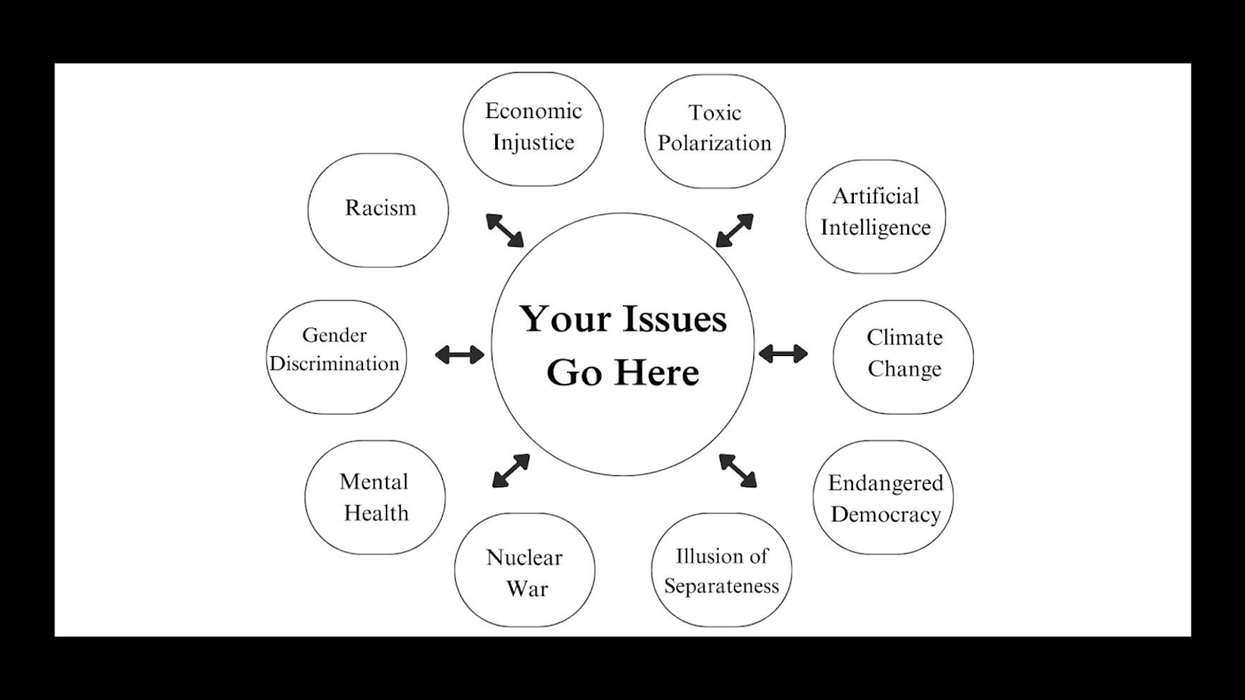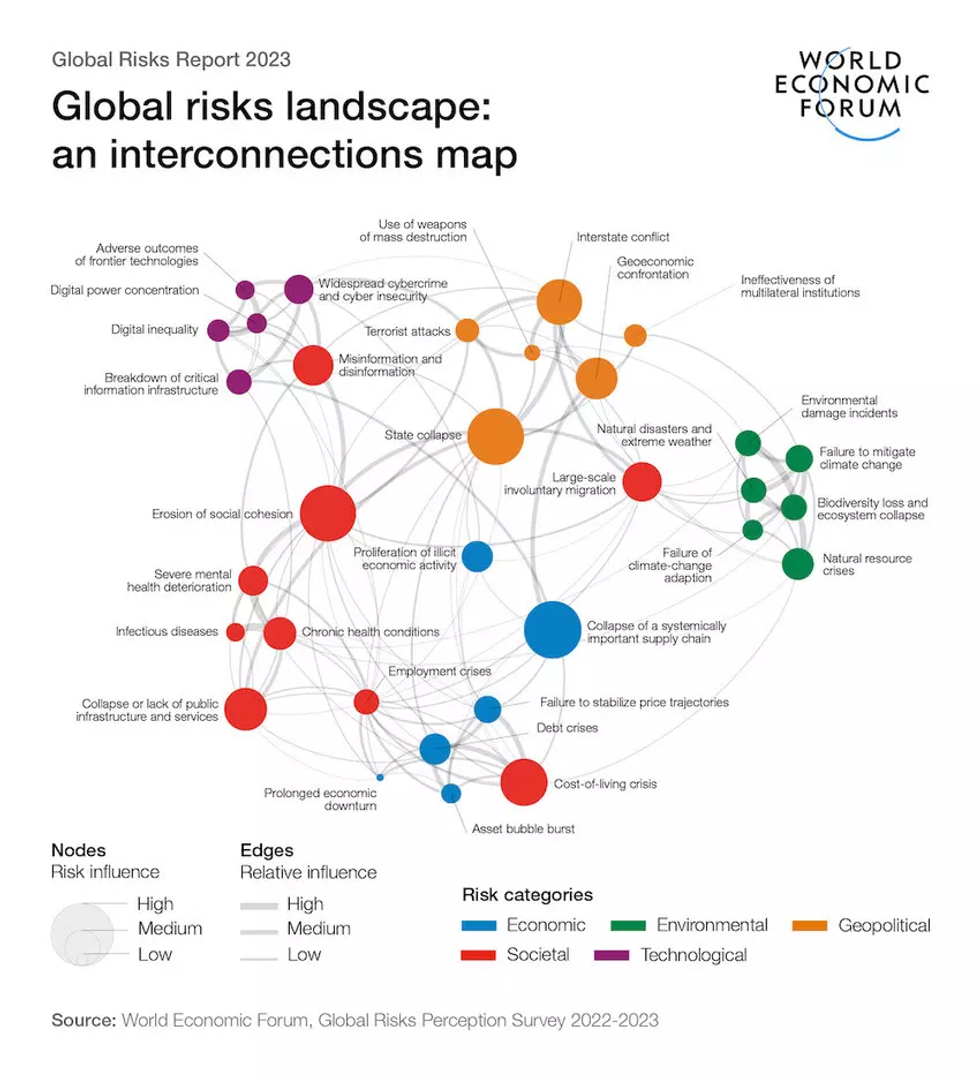Becvar is co-publisher of The Fulcrum and executive director of the Bridge Alliance Education Fund, the parent organization of The Fulcrum.
It's no coincidence that the work of the Mediators Foundation resonates with me, as the organization is part of the original DNA of the Bridge Alliance. The latest instance of my head nodding in agreement stems from this week's article by the Mediators Foundation’s Mark Gerzon and Mesa Sebree. It really gets to the core of how all those working in the healthy democracy ecosystem can collectively approach the complex web of issues facing the world known as the polycrisis.
The term "polycrisis" usually describes a situation where multiple crises intersect and amplify one another, creating a compounded and more severe impact than each crisis would have individually. This concept also suggests that the interactions between various crises can lead to more complex and unpredictable challenges. In a polycrisis, the different crises are not just co-occurring; their interconnections exacerbate the overall situation, making it more challenging to manage and resolve. For example, an economic downturn might worsen political instability, hindering effective responses to climate change or public health threats. The term underscores the need for comprehensive and coordinated approaches to address these interconnected issues.
The concept of polycrisis has a rich history, rooted in systems thinking and complexity science. These disciplines have long studied how interconnected crises can compound and amplify one another. The term “polycrisis” was first used in the 1990s by Edgar Morin and Anne Brigitte Kern, as detailed in the Cascade Institute report cited by Gerzon and Sebree. More recently, the term was popularized by Jean-Claude Juncker, the former president of the European Commission. He used the term in a 2016 speech to describe the multiple overlapping crises facing Europe, including the Syrian refugee crisis, Russian security threats to Ukraine, the Greek debt crisis, and Brexit. Most recently, the World Economic Forum at Davos pushed the term into the lexicon of business executives and elites, a sign that it has thoroughly infiltrated our society.
Gerzon and Sebree outline perspectives on the 10 most distinct interlocking issues of the polycrisis as they currently understand it. Each perspective is presented as a critical, interconnected issue that requires a holistic and integrated approach to tackle the polycrisis effectively. They are:
- Endangered democracy.
- Climate change.
- Economic injustice.
- Toxic polarization.
- Artificial intelligence/tech.
- Mental health.
- Racism.
- Nuclear war.
- Gender discrimination.
- The illusion of separateness.
They continue with an exploration of five strategies for addressing the polycrisis, acknowledging the challenges practitioners focused on each sector of work face in competing for resources and attention. Despite those challenges, it remains unavoidable that each cause impacts and is impacted by the rest and more unanticipated factors. No less important is the truth that individuals engaging in social change work must be mindful of maintaining their mental health and spiritual practices and constantly remain open to changing their perspective.
Finally, the article's analysis turns to priority setting. There is often a focus on "the global polycrisis," but the nature of interconnected challenges lends the concept to vary depending on place and time. The crises we face as global citizens affect and are affected by the crises specifically facing American society. Similarly, the crises we face as Americans affect and are affected by the crises specifically facing individual states and communities. Just as national practitioners cannot and are not looking to focus on accessing the levers of global institutional power, local communities must realize their agency in addressing what they need to develop to adapt to survive the effects of the polycrises.
Our community of practice in the healthy democracy ecosystem has demonstrated the effectiveness of supporting bottom-up civic engagement while maintaining national resources to support communities. The Mediators Foundation is looking toward the Resilience Funders Network model and exploring ways to best support broader dialogue about the scope and strategy of communities for working within the polycrisis. At a time when these challenges are on our screens and in our minds, it is reassuring to read this vital take on how we can face them head-on.





















